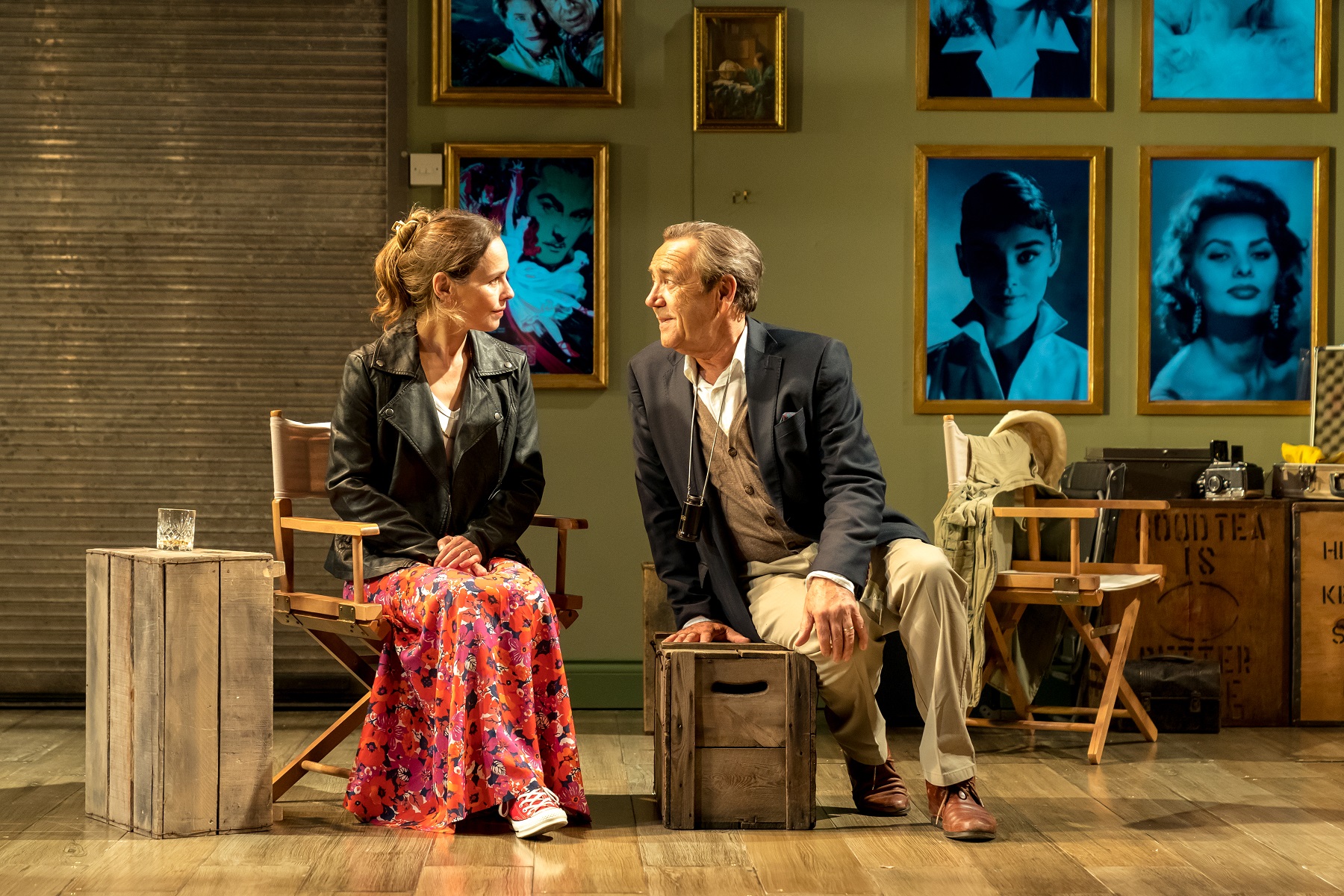Jack Cardiff was the cinematographer behind such masterpieces as The Red Shoes, The African Queen and Death on the Nile. He also turned his hand to directing during his illustrious career, winning a Golden Globe for Best Director for the film Sons and Lovers.
Playing the role of Cardiff in Prism – a work based on the late cinematographer’s life – is Robert Lindsay, who knew Cardiff and brought his book to writer and director Terry Johnson‘s attention. After gaining permission from the Cardiff family – which in itself was a rare gift for the actor – Lindsay felt that Cardiff’s story was too special to be left untold.
From the moment the garage door begins to lift on stage – Lindsay’s voice already audible as he starts teaching his son, Mason (Oliver Hembrough), and new carer, Lucy (Victoria Blunt), about the changing dynamics of the screen through the gap – the audience are thrust into his world. It’s a world where light and photography combine to create powerful images; and yet, at the same time, it’s one Cardiff is losing a grip of because of dementia. As the disease takes hold, Lucy encourages the family to ‘play along’; to enter his world rather than fight against it and risk alienating Cardiff and confusing him even further.
It’s a touching story, which reaches something of a climax in Cardiff’s struggle when he punches Mason – believing him to be Humphrey Bogart from times past. The scene is cleverly replayed in the second half, forming a sort of déjà vu both for Cardiff himself and the audience.
Lindsay’s performance throughout is magnetic, pulling the audience into every emotion, every passionate retelling of the films so special to his character, and every pain felt by his worsening condition. Still, it is not all quite so serious, for there are plenty of light-hearted moments; Blunt proves herself to be an expert in comic timing as the enthusiastic (although not necessarily highly skilled) care assistant with her own heart-wrenching story to tell.
Cardiff tries to teach young Lucy that films are about telling stories, and over the course of their time together she pieces together his story that he has in fact been writing for months. In Prism, Johnson has taken these writings and created a poignant and intriguing play about the importance of caring for the people and things you hold dear, whether it be the prism Cardiff so longed for to create his masterpieces or the person behind the story.
